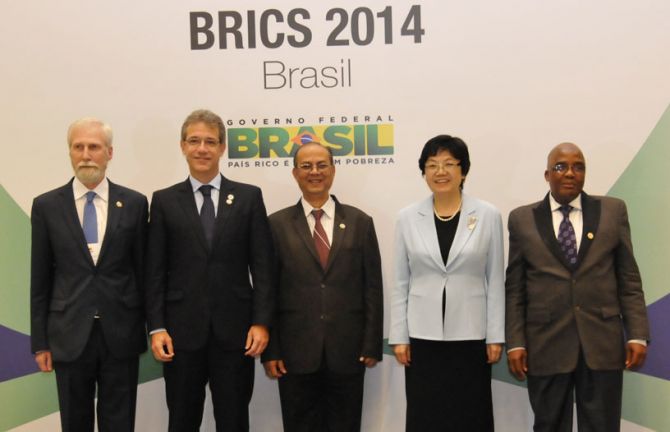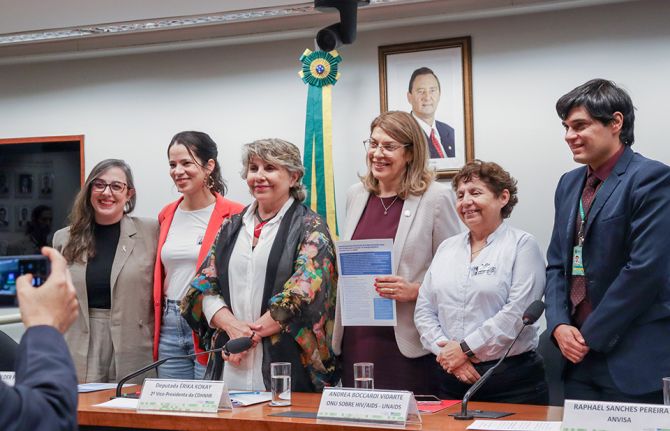

Update
BRICS health ministers adopt the UNAIDS Fast-Track strategy to end the AIDS epidemic
10 December 2014
10 December 2014 10 December 2014Health ministers from Brazil, Russian Federation, India, China and South Africa (BRICS) have committed to adopting the UNAIDS Fast-Track strategy to end the AIDS epidemic as a global health threat by 2030.
The decision was announced at a meeting of the ministers of health of the BRICS countries, held in Brasilia, Brazil, from 4 to 5 December. The ministers agreed to endeavour to achieve the 90–90–90 HIV treatment target by 2020, which is to rapidly reduce new HIV infections and AIDS-related deaths and to put countries on the Fast-Track to ending the AIDS epidemic by 2030. They also committed to ambitious tuberculosis (TB) targets and to advance cooperation and action on TB and HIV in the BRICS countries, such as the production of quality assured drugs and diagnostics for TB cases.
In 2013, the BRICS countries accounted for about 30% of new HIV infections worldwide. Estimates are that nearly half of all TB cases, 55% of multidrug resistant TB cases and 38% of all TB/HIV cases occur in the BRICS countries.
The adoption of the Fast-Track strategy by the health ministers demonstrates the renewed political commitment of the BRICS countries to work together to lessen the impact of TB/HIV coinfection. According to UNAIDS, the majority of people living with HIV will live in middle-income countries in the near future. In this regard, the BRICS countries can serve as a reference to provide solutions and exchange experiences with emerging economies.
UNAIDS Deputy Executive Director Luiz Loures called for an increased leadership by the BRICS countries to motivate the global community to implement the 90–90–90 treatment target and also fast-track the response to AIDS.
Quotes
"The possibility of ensuring free first-line treatment against tuberculosis is a milestone and it demonstrates our engagement, our incentive to the development of technologies and our support to multilateral health initiatives."
"We are happy to see that the BRICS countries are deepening discussions and moving towards collaborating actions for addressing the tuberculosis and HIV burden in the BRICS countries and beyond."



